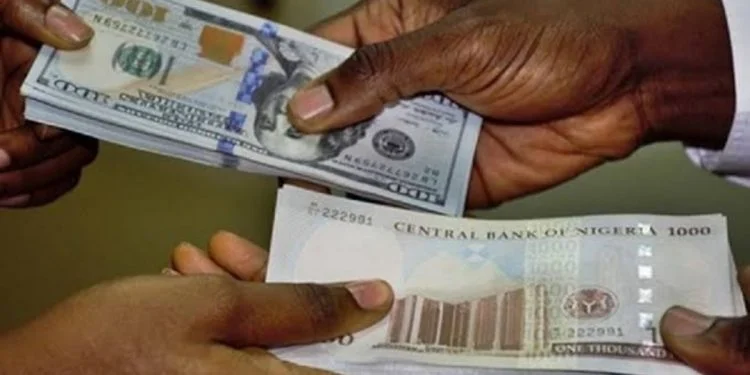In current times, the Nigerian economic situation has been facing significant difficulties due to the variations in the value of its currency, the naira. The currency exchange rate of the naira versus major international currencies, particularly the United States dollar, has been a reason for worry among financiers, merchants, and also day-to-day citizens. This write-up intends to shed light on the recent depreciation of the naira against the US dollar as well as its prospective impact on the Nigerian economic climate.
Comprehending the Naira's Devaluation
The naira experienced a notable depreciation of 4.27 percent against the US dollar, closing at N774.78 per United States buck at the capitalists and also exporters (I&E) home window. This decline amounts to a reduction of N31.71 compared to the previous trading price of N743.07. The data, sourced from FMDQ Securities Exchange, highlights the recurring changes dealt with by the naira in the main FX market.
The I&E FX Window: A Critical Market Segment
The I&E FX window plays an essential function in the Nigerian FX market. It serves as the trading system for capitalists, exporters, as well as end-users, allowing FX deals based upon prevailing market problems. Being the official FX market in Nigeria, it substantially influences the naira's value against foreign money. The continuous fluctuations in the I&E FX home window have actually come to be a topic of issue for the Nigerian government and also market participants.
Identical Market Characteristics
Unlike the main FX market, the parallel or street market runs unofficially and also has its exchange rates. Bureaux De Modification (BDC) drivers in the Victoria Island location of Lagos disclosed that there is a high demand for international money, specifically the US buck. At the time of coverage, the buying rate of the buck was N890, as well as the asking price was N897, with a revenue margin of N7.
Variables Behind the Naira's Devaluation
The devaluation of the naira can be credited to various variables. Economic experts and also analysts indicate the volatile worldwide economic problems, modifications in oil prices, and also Nigeria's dependency on oil exports as substantial variables affecting the naira's worth. Furthermore, the unified exchange rate system adopted by the federal government has actually resulted in raised variations in the main FX market.
Effect on Rising Cost Of Living and also the Economic climate
The expanding space between the authorities and also the parallel market currency exchange rate is a matter of concern. PricewaterhouseCoopers (PwC), a prominent expert services company, recently forecasted greater rising cost of living as well as preceded volatility in the FX market for August. The elimination of gasoline aid as well as the fostering of a taken care of float currency exchange rate system are expected to exert added stress on inflation rates in the nation.
Conclusion
The changing naira is an important problem that requires interest from policymakers and also market individuals alike. The current devaluation versus the US dollar has raised worries about the stability of the Nigerian economic climate. Resolving the origin of currency fluctuations as well as applying reliable measures to support the naira must be a top priority for the federal government.
Frequently asked questions
What is the I&E FX window?
The I&E FX window is the official foreign exchange market segment in Nigeria, where financiers, merchants, and end-users profession based on prevailing market conditions.
Why does the naira vary against the United States buck?
The naira's fluctuations can be attributed to international financial conditions, oil cost modifications, and also Nigeria's dependence on oil exports.
What is the parallel market?
The parallel market runs unofficially as well as has its exchange rates, where the United States buck and other money are traded outside the main FX market.
How does the naira's devaluation impact the rising cost of living?
The depreciation of the naira can result in higher inflation prices, as it influences the price of imported items as well as solutions.
What are the projected financial fads for August?
PricewaterhouseCoopers (PwC) projects higher inflation and also continued volatility in the FX market for August because of the elimination of gasoline subsidy and the adoption of a handled float exchange rate system.

Post a Comment